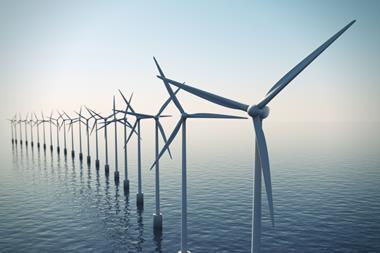Dutch asset manager PGGM is buying a big stake in a German offshore wind farm, co-investing with Macquarie Capital in a deal it says will give a good financial return as well as fit in with its clients’ aims regarding sustainability.
PGGM said it was investing in the new German offshore wind farm Baltic 2 alongside Macquarie Capital, which agreed to buy a 49.89% stake in the project earlier this year.
Frank Roeters van Lennep, head of infrastructure at PGGM, said: “With Baltic 2, we will realise a good financial return, and, with our investments, we can take a next step in helping to make Europe’s energy infrastructure more sustainable.”
A spokesman for PGGM declined to disclose the exact size of its stake or what it paid but described the stake as “substantial”.
He said it was an important addition to PGGM’s growing portfolio of green energy investments, which have now reached a total value of around €900m within the infrastructure asset category.
PGGM’s total infrastructure investments now amount to €5.6bn.
The new wind farm, which will become fully operational this summer, will provide energy for 340,000 homes, PGGM said.
The project is part of the German government’s Energiewende policy to move the country quickly to low-carbon electricity production.
The wind farm has been built by German utility EnBW, which is keeping a 50.11% stake in the project.
EnBW will also maintain the power facility.
Under current German regulations, Baltic 2 will benefit from around 11 years of fixed energy prices and another nine of downside protection when it sells electricity at market prices.
Roeters van Lennep said Germany still needed a lot of capital to fulfil its Energiewende ambitions, and that PGGM wanted to contribute.
“Our clients fully support investments in the energy transition,’’ he said.
PGGM said high wind speeds in the farm’s location in the German part of the Baltic Sea meant the 288MW installation was expected to generate more than 1,200 Gwh of green power a year.
This will replace electricity now generated by conventional power stations and create CO2 offset of 900,000 every year, it said.







